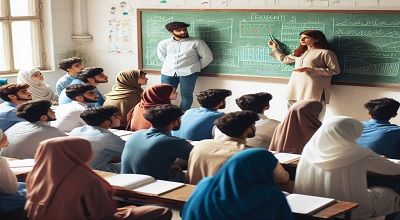Government Role in Pakistan Education System
The government plays a significant role in the education system in Pakistan, as it does in many countries. Education is considered a fundamental right in Pakistan, and the government is responsible for ensuring access to quality education for all its citizens. Here are some key aspects of the government’s role in the education system in Pakistan:
- Policy Formulation: The government, both at the federal and provincial levels, is responsible for formulating education policies. These policies guide the direction and priorities of the education system, including curriculum development, assessment methods, and education standards.
- Education Budget: The government allocates funds for education in the national and provincial budgets. Adequate budget allocation is essential for improving educational infrastructure, teacher training, and ensuring access to education for marginalized communities.
- Curriculum Development: The government is responsible for developing and revising the national curriculum. It sets the framework for what students learn at different educational levels and helps ensure consistency and quality across the country.
- Infrastructure Development: The government is tasked with building and maintaining educational infrastructure, including schools, colleges, and universities. This includes constructing new facilities, providing necessary resources, and ensuring the safety of educational institutions.
- Teacher Training: The government is responsible for the training and professional development of teachers. Quality teacher training programs are crucial for improving the standard of education.
- Access to Education: The government should ensure that all children, regardless of their socio-economic status, have access to quality education. This includes initiatives to promote enrollment and retention in schools, especially for girls and children from marginalized communities.
More read…
- Monitoring and Evaluation: Government agencies are responsible for monitoring and evaluating the performance of schools and educational institutions. This helps identify areas for improvement and ensures accountability in the education system.
- Education Reforms: The government is responsible for initiating and implementing education reforms to address issues such as the quality of education, the gender gap, and improving overall educational standards.
- Public and Private Education: The government regulates both public and private educational institutions to maintain quality standards and ensure that they adhere to educational guidelines.
- Scholarships and Financial Assistance: The government often provides scholarships and financial assistance to students, particularly those from underprivileged backgrounds, to promote access to higher education.
- Standardized Testing: Government bodies may conduct standardized testing, such as board exams, to assess student performance and ensure a certain level of quality in education.
- Vocational and Technical Education: The government may promote vocational and technical education to provide students with skills that can help them in the job market.
Summary
The education system in Pakistan is managed at both the federal and provincial levels. Each province has its own education department responsible for implementing education policies and overseeing educational institutions. While the federal government sets some national standards and guidelines. The provinces have a significant degree of autonomy in education matters.
It’s important to note that challenges exist within Pakistan’s education system. Including issues related to quality, access, and equity. The government’s role is crucial in addressing these challenges and working towards improving the overall state of education in the country.
